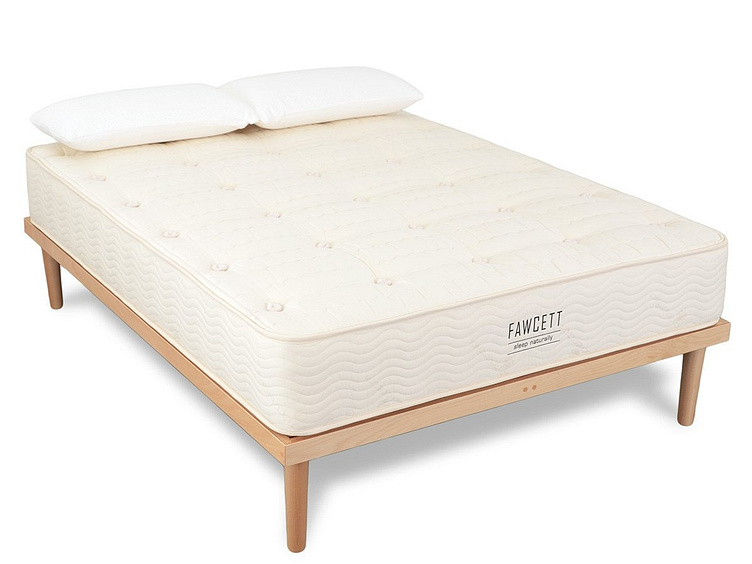What are the pros and cons of an organic mattress?
Introduction
In recent years, there has been a growing interest in organic products and sustainability, extending even to the realm of mattresses. With an increased focus on health and environmental consciousness, many consumers are considering organic mattresses as an alternative to traditional ones. In this article, we will delve into the pros and cons of an organic mattress, exploring its benefits and potential drawbacks. So, let’s take a closer look at why organic mattresses have gained popularity in Canada and what you should consider before making your purchase.
Pros of Organic Mattresses
Health and Safety Benefits:
One of the key advantages of organic mattresses is their natural composition. Made from materials such as organic cotton, natural latex, and wool, these mattresses are free from harmful chemicals, pesticides, and synthetic materials commonly found in conventional mattresses. By choosing an organic mattress, you can minimize your exposure to potentially toxic substances, creating a healthier sleeping environment.
Environmental Sustainability:
Organic mattresses are manufactured using eco-friendly practices. The materials used are grown and processed without the use of harmful chemicals or pesticides, reducing the environmental impact. Additionally, organic mattress manufacturers often prioritize sustainable production methods and support fair trade practices. By opting for an organic mattress, you contribute to a more sustainable future by supporting ethical and environmentally responsible businesses.
Allergen-Friendly:
Organic mattresses are an excellent choice for individuals with allergies or sensitivities. The absence of synthetic materials and chemical additives minimizes the risk of triggering allergic reactions. Additionally, natural materials like wool and latex have inherent antimicrobial and hypoallergenic properties, providing a barrier against dust mites, mold, and other common allergens.
Comfort and Support:
Organic mattresses are designed to provide optimal comfort and support for a good night’s sleep. Natural latex, a common material used in organic mattresses, conforms to the body’s contours, providing excellent pressure relief and spinal alignment. The breathability of organic materials like cotton and wool also helps regulate body temperature, promoting a comfortable and restful sleep environment.
Durability:
Organic mattresses are known for their durability. The natural materials used in their construction are often more resilient and long-lasting compared to synthetic counterparts. While organic mattresses may have a higher upfront cost, their longevity can make them a worthwhile investment in the long run.
Cons of Organic Mattresses
Higher Price Point:
Organic mattresses generally come with a higher price tag compared to traditional mattresses. The use of organic materials, sustainable production practices, and adherence to quality standards contribute to the increased cost. However, it’s important to consider the long-term benefits and the potential health and environmental advantages when evaluating the overall value.
Limited Availability and Choice:
Despite the increasing demand for organic mattresses, they may still be less readily available compared to conventional mattresses. Additionally, the range of styles, firmness levels, and customization options might be more limited. However, as the demand continues to grow, more options are becoming available in the market.
Different Feel:
Organic mattresses, especially those made of natural latex, may have a different feel compared to traditional spring or foam mattresses. While many people find the natural contours and responsiveness of latex mattresses comfortable, it’s essential to try different options and consider personal preferences before making a decision.
Conclusion
Organic mattresses offer several benefits such as improved health and safety, environmental sustainability, and allergen-friendliness. They prioritize natural and eco-friendly materials, providing comfort and support for a restful sleep. However, it’s important to note that organic mattresses may come with a higher price tag and limited availability compared to conventional mattresses. When considering an organic mattress, take into account your specific needs, preferences, and budget.
As the demand for sustainable and organic products continues to rise, the market for organic mattresses in Canada is expanding. By choosing an organic mattress, you not only prioritize your health and well-being but also contribute to a more environmentally conscious and sustainable future. So, explore the options available, consult customer reviews, and make an informed decision to find the best organic mattress that meets your unique needs and preferences.
Remember, a good night’s sleep is essential for overall well-being, and investing in a high-quality mattress, be it organic or conventional, can make a significant difference in the quality of your rest.

